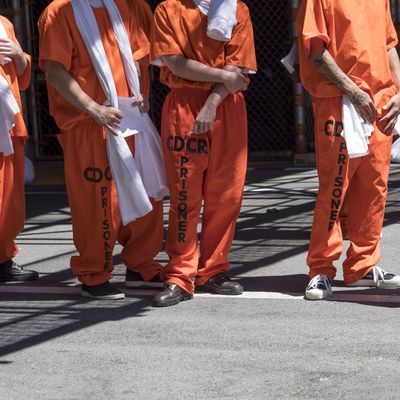
These are times that make a lot of people who have spent years slowly building a bipartisan consensus favoring criminal-justice reform very nervous. In 2016, Donald Trump won while campaigning on a crude 1970s/’80s-style “law and order” message in direct opposition to reform. After taking office, he promptly appointed criminal-justice-reform nemesis Jeff Sessions as his attorney general. Could the rock that was so painfully pushed up the hill toward reversal of mandatory-minimum sentencing and mass-incarceration policies be about to roll right back down?
At Democracy Journal, John Pfaff offers some largely comforting words about the Trump-Sessions effect on mass incarceration, reminding us that the administration has limited leverage over the state and local criminal-justice policies and practices that drive incarceration. And he also usefully explains that even state governments that conservatives control are less important than local prosecutors, who have different incentives than tough-on-crime pols:
[W]hat prosecutors care about is their county electorates. And, at least in more populous counties, local politics still seem to favor reform. The 2016 election provides several interesting examples of this. In red and blue states alike, voters frequently approved smart-on-crime initiatives (including two focused on decriminalizing drugs in strongly pro-Trump Oklahoma) and elected reform-minded prosecutors in places ranging from Corpus Christi and Dallas in Texas, to Jacksonville, Florida, to Chicago, Illinois.
The real problem, Pfaff argues, is that Trump may have sensed a fundamental change in the political winds:
Reform’s biggest vulnerability … is that Americans remain fearful of crime, even as crime rates have dropped to near-historic lows. And from its start, Donald Trump’s campaign aimed to stoke those fears.
It turned out to be relatively easy for Trump to cherry-pick alarming crime statistics — such as the spike in murders in certain cities — to rebuild fears that were only beginning to abate after decades of steadily reduced crime rates. Will other pols seize on largely anecdotal evidence of a renewed “crime wave” to emulate Trump’s success? That would not be surprising.
There’s a chance that the political dynamics that created the war on drugs and other backlash policies are less likely to recur, even with Trump fanning the flames. After all, reactionary criminal-justice policies used to be near-universal among Republicans, and also very popular among Democrats who viewed being “tough on crime” as a swing-voter imperative. There is now resistance on the right to the “crime wave” talk, and significantly less knee-jerk “me too” rhetoric among Democrats. Perhaps we will soon be able to look back on the Trump administration as an experiment in backlash politics that ultimately failed. Let’s hope so.






























